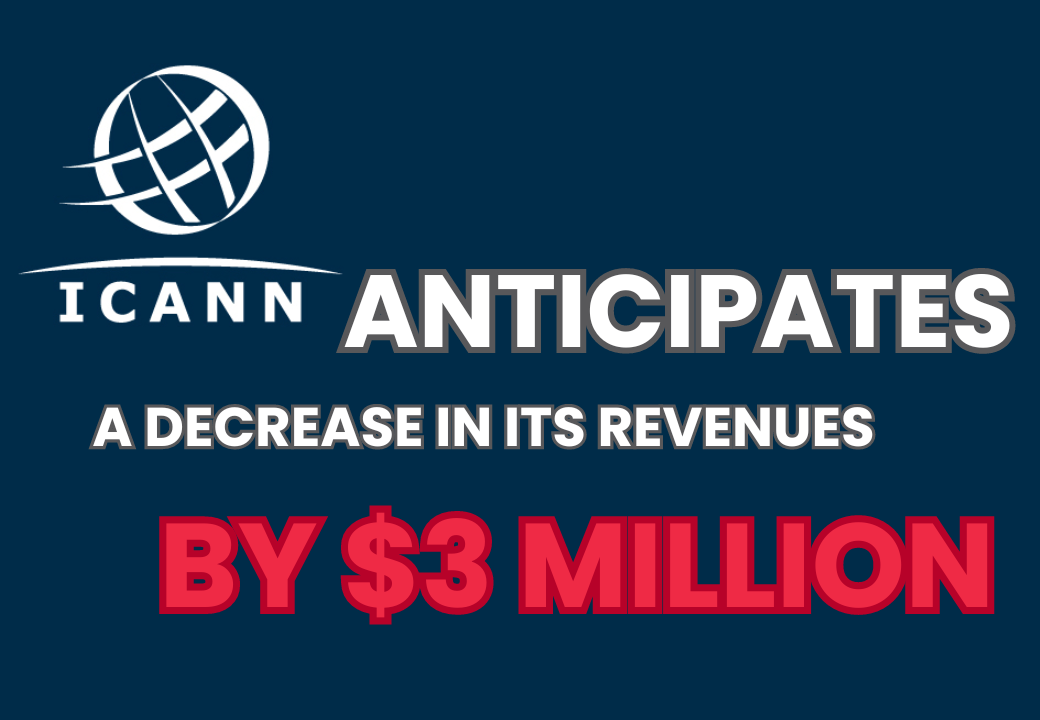ICANN anticipates a decrease in its revenues by $3 million, down to $145 million, after it became apparent that domain sales would not be as robust as previously estimated. The organization presented these changes during two teleconferences, where ICANN’s CFO, Xavier Calvez, pointed to inflation of costs and lack of growth in funding as the main causes of the situation.
ICANN analysts predict a 4% decrease in transaction fees from older gTLDs, primarily .com, for fiscal year 2025, which begins in July this year. Back in December, when the first draft of the budget was published, a 0% growth was anticipated. Additionally, leaders at Verisign forecast a growth rate for .com/.net domains ranging from 0.25% to -1.75%, a reduction from the forecasts in February.
Forecasts for new gTLDs
ICANN expects a 7% increase in transaction fees for new gTLDs in FY25, which, however, is significantly lower compared to older gTLDs where a 2% increase was estimated in December. This forecast adjustment may stem from several factors. Primarily, new gTLDs are gaining popularity among internet users who are looking for more personalized and distinctive domain names that better meet their business or personal needs. This interest may translate into an increased number of registrations, affecting the rise in transaction fees.
It is worth noting that the anticipated growth for new gTLDs is much higher compared to older gTLDs like .com, where the forecasted growth was only 2%. This disparity may indicate a shift in market trends, where new gTLDs are becoming more attractive to users and investors. This difference might also reflect the saturated market of older gTLDs, where the potential for growth is already limited by a high base of existing registrations.
Summary
Although ICANN had expected that funding would not cover expenditure requirements by $5 million, the current difference stands at $8 million. To avoid operating at a loss, the organization has introduced this deficit under the “Savings Initiatives” line, striving to present a balanced budget. The specific cost-saving measures are not yet clear, and community concerns may suggest that services could suffer from budget cuts.
Discussions have mentioned looking for efficiencies in the travel budget or among contractors, where budgets amount to $13 million and $24 million respectively. However, personnel costs remain the largest expense at $90 million, with no changes expected in the number of ICANN staff positions, so layoffs do not seem to be considered at the moment.
Kamil Kołosowski
Author of this post.
